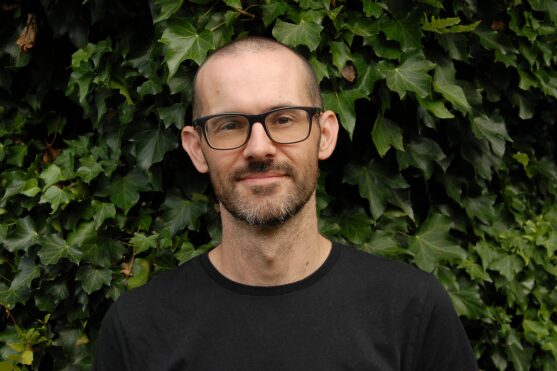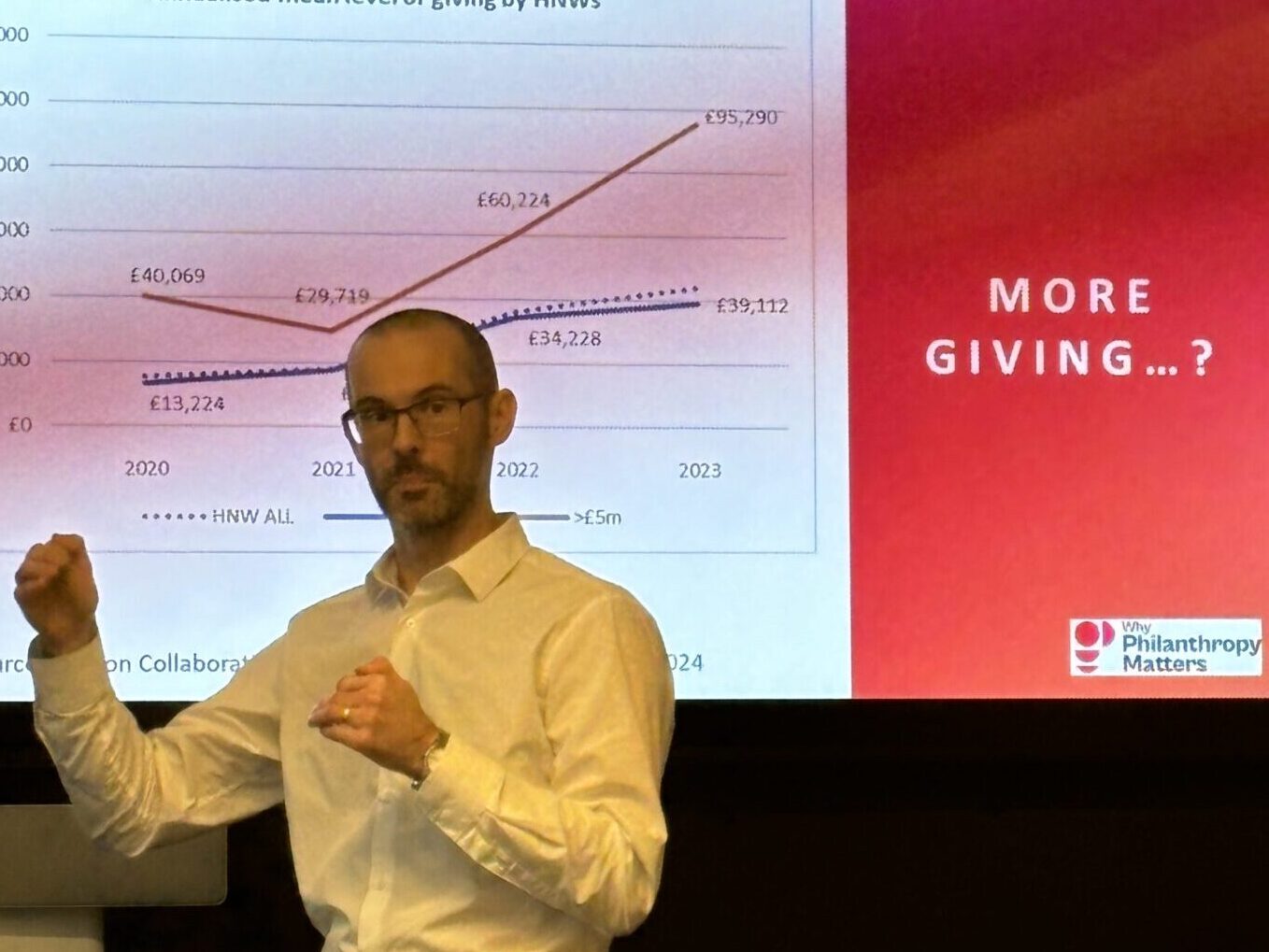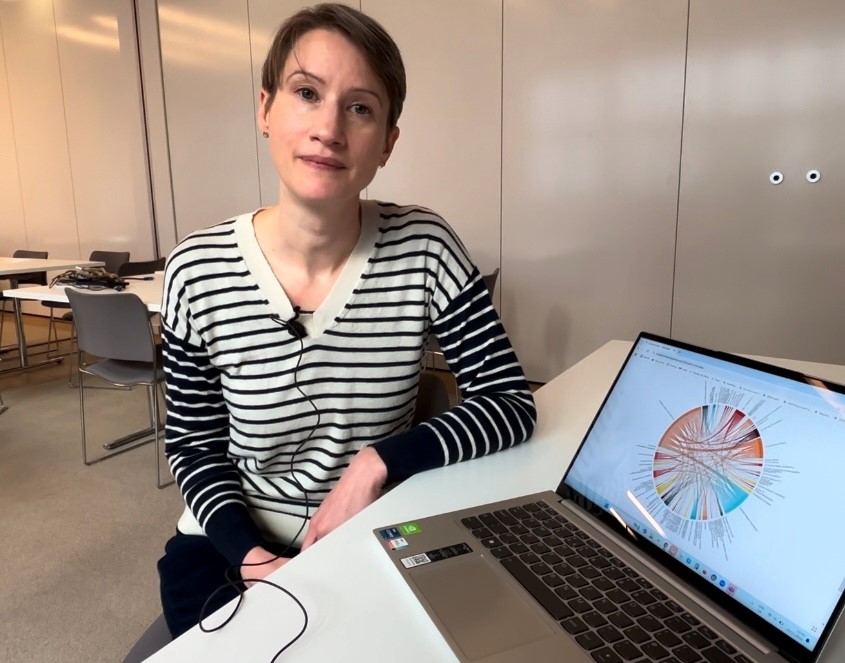Rhodri Davies on how the sector can shift critical views of philanthropy and tell a more engaging story

Rhodri Davies is a well-known expert and commentator in the UK on philanthropy and civil society issues. He is the founder and director of the thinktank Why Philanthropy Matters and the host of the Philanthropisms podcast. He kicked off Philanthropy Australia’s recent UK study tour with a presentation about the state of play in the UK sector and emerging trends. Beforehand, he spoke to Philanthropy Weekly on what he sees happening locally and globally – and what’s on the horizon.
Read an overview of Philanthropy Australia’s UK Study Tour.
This is Part 2 of an extensive Q&A with Rhodri. Read Part 1 on Philanthropy Australia’s website.
6. In Australia, we’re trying to achieve a cultural shift around giving because, as you know, we have a lower level of giving as a percentage of GDP than comparable countries. What’s your view on how we can better tell the story of philanthropy to the public or make philanthropy more relatable and engaging to those outside the sector?
If I had a single answer to that, I wouldn’t have been spending the last 20 years of my career trying to do it! I don’t think there’s a single silver bullet, but there are some things that we can do more. What I try to do in my work when I talk about philanthropy is to take that perspective to where people are already talking about other issues, rather than expecting people to come to me.
As a sector, we’ve been guilty of not really engaging with the wider world. The tendency for technocratic and jargonistic language is very off-putting, for example. Whereas if you can go out there and engage with what people are actually talking about, whether it’s cost of living or the lack of affordable housing for example, and share stories on why philanthropy has a role to play in that space, with examples of what’s being done, then it starts to bring philanthropy to life.
People might then start to see philanthropy not as a niche thing that exists over there somewhere in the charity sector, but actually as something that affects everybody’s lives in one way or another.

7. How can we shift some of the negative views of philanthropy?
We do need to engage more with critical views of philanthropy, because some of them are very valid and they have gained momentum and tipped over into the mainstream in the last five or 10 years. However, the narrative becomes a one-sided polemic if we don’t hear counter arguments from people who are trying to improve philanthropy. So, it’s important not to just get defensive, but to show a willingness to engage and debate, otherwise it risks becoming two different worlds that never speak to each other.
If there are other, more positive, narratives about philanthropy that we can offer to the large mass of people who have not yet made their minds – as a counterpoint to more polemic critical narratives they might hear – that will probably have more of an impact than trying to shift the views of those with entrenched opinions, which is always very difficult.
I think a historical perspective helps, too. Personally, I’m interested in history for its own sake, but when you’re talking about difficult issues I have also found it can be very useful because it offers some sense of how this is part of a much longer trajectory; it can help people to have more objectivity. It also gives people a sense of continuity and connection.
History gives you a sense that the critiques we are hearing are not new: which is not to delegitimize them, but issues about power dynamics and democracy and inequality have existed for hundreds of years. So, it’s reassuring to dig into history and realise that the reason we can’t necessarily come up with straightforward answers now is not because we’re not trying hard enough, it’s because they’re very difficult, complicated questions!
In a more pragmatic sense, the massive popularity of historical podcasts and TV programs shows there’s a real appetite for these perspectives. There’s a whole story about the history of philanthropy in the UK (and everywhere else) that hasn’t been especially well told – and certainly not to a mainstream audience. So, there is potential there to tell that story and interest people in that way.
8. What’s happening in relation to data sharing in the UK and why do you think it’s important?
The work that 360Giving has done in pushing for an open data standard in the grantmaking world and in getting people to sign up to that has been really impressive. It’s got a lot of attention from around the world. There are organisations that will always buy into it on goodwill because transparency is in the interests of philanthropy, but if you want that longtail of organisations that aren’t there yet, you’ve got to demonstrate why there’s a value for them individually or collectively. That’s still a work in progress.

360Giving is building on this. The UK website they’ve created allows foundations to look at data on grantmaking in a much more granular way to understand trends and it really is a great tool. Hopefully that will start to convince people of what you can do now, but also how much more powerful it can be in the future.
The other point relates to the potential impact of AI. For any organisation that either wants to use AI or thinks the philanthropy sector could benefit from AI, you’ve got a vested interest in getting your house in order when it comes to data.
So, if you’re not sold on data sharing for any other reason, then future-proofing your own organisation and the sector on that basis is a good one. And I think people are starting to realise that.
9. You must get asked this all the time – but why does philanthropy matter?
At a micro level, philanthropy is about individuals and the choices they make about wanting to do good and help others or give away their assets for public good. It says something about what it is to be human and what human nature is. However society develops in the future, there’ll be philanthropy of some kind or another, so for that reason, it matters.
Then at a macro level, when you take all of those individual acts of philanthropy and put them together, you’ve got a system that sits alongside the state and the private sector as a way of redistributing resources and trying to affect social issues at scale. So that matters because it affects all of our lives.
Then there are questions about who’s got these resources? What’s motivating them? How are they choosing to deploy them? What kind of scrutiny can we put on them? When you ask people, has your life been affected by philanthropic organisations, a lot of them will say no. Then when you talk them through what philanthropy actually is, and some examples of it, they’ll go, ‘oh yeah, actually that is true’. Philanthropy has probably touched pretty much everybody’s life in some way or another. We’re often not really very aware of it, so there’s a lot more to do to bring that to light.
10. And why does philanthropy matter to you?
Similarly, there’s that bit of me that wants to broadly do some good in the world and do something that I feel has value. It’s also intellectually interesting. I fell into the world of philanthropy 20 years ago, largely by accident and thought I’d be back out of it again in six months. Before that, it had never occurred to me how interesting it was, but then I realised that it’s about psychology, it’s about microeconomics, it’s about behavioral science; but it’s also about politics and how society works. So there are all of these different ways you can look at philanthropy. I’ve still yet to get bored and hopefully never will!
Rhodri is also a Pears Research Fellow in the Centre for Philanthropy at the University of Kent and Philanthropy Expert in Residence at the Pears Foundation. He is the author of two books: What is Philanthropy For? (2023) and Public Good by Private Means: how philanthropy shapes Britain (2016). He was formerly Head of Policy at Charities Aid Foundation, where he also set up the in-house thinktank Giving Thought.